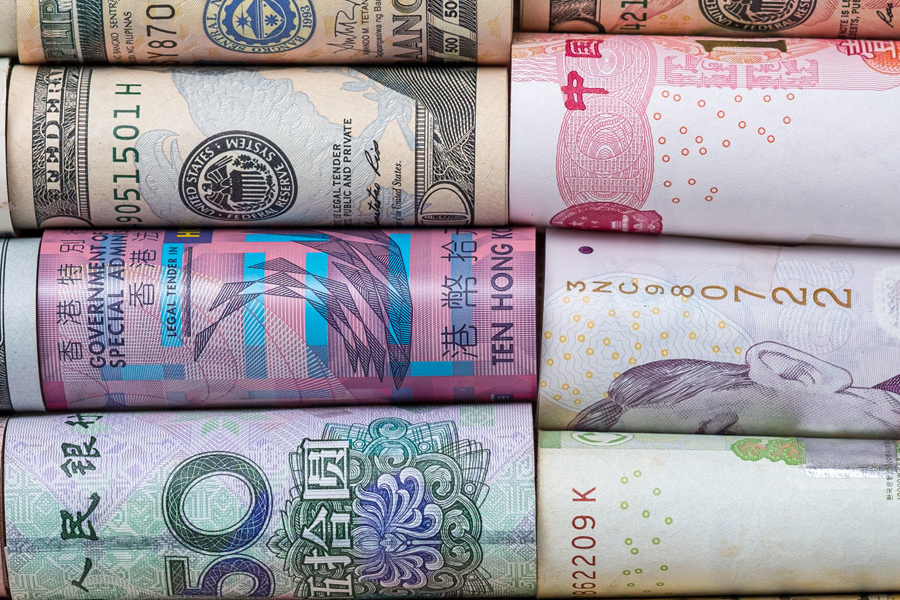Foreign direct investment reviews increasingly impact cross-border deals
Continued emphasis on FDI around the world, particularly in the US and Europe, creates additional challenges for investors

The past two years have witnessed significant geopolitical fracturing and macroeconomic difficulties that continue to hamper certain dealmaking. Several sectors have posted transactional lows throughout 2023, and persistent inflation and high interest rates look set to remain in place for now. Economic decoupling and growing global regulations also create transactional hurdles, while China's slowing economy and now the Israel-Hamas war add to a steady sense of market unpredictability.
And yet, with volatility comes opportunity, such as infrastructure and renewables projects, growth in the semiconductor industry, and the rise of private credit. As many companies and investors in Taiwan are discovering, economic or regulatory setbacks are an invitation to think innovatively and to recalibrate their approach. With the right information and careful planning, they can position themselves for success now and in the future.
Following our 18th Annual Taiwan Roundtable Series in September, we hope this year's report for Taiwan-focused companies and investors provides helpful guidance in a rapidly evolving political and economic landscape.
We begin with a look at the continued proliferation of foreign direct investment (FDI) regimes in the US and the European Union. The Committee on Foreign Investment in the United States (CFIUS) has ramped up its activity to an all-time high, while EU member states continue to implement, refine and expand their regimes. Many FDI focus areas overlap with those of Taiwanese companies—technology in particular—meaning early-stage analysis is critical in this arena.
We then analyze the impact of forum selection in contracts with mainland Chinese (PRC) companies. Despite the tensions between PRC and Taiwan, their economies remain inextricably intertwined, so Taiwanese companies should consider how the provision of "interim measures" in Hong Kong arbitration can benefit their business.
Next, we provide an overview of the EU's new Foreign Subsidies Regulation (FSR), which scrutinizes foreign financial contributions received by companies engaging in M&A and public tenders in the EU, and grants the European Commission the power to investigate any other potentially distortive market situation. Taiwanese companies should be aware that the FSR casts a wide net and could also encumber merger control and FDI filings.
We then turn to the growing popularity of the US International Trade Commission (ITC) for trade secrets litigation. The ITC's unique global reach means trade secret owners can make a claim of misappropriation on any product that enters the US, even if the trade secret and alleged misappropriation are entirely extraterritorial. The risk of these claims has broad implications, especially for foreign companies trying to diversify and broaden their global footprint.
Our transaction-focused piece looks at the evolution of M&A, debt finance and investment funds practices in a tough macroeconomic environment. Certain technology and renewables remain attractive for M&A and private equity, while local consumer brands are considered the next target of credit investors, and the funds space is seeing growth in the secondaries market and NAV financings.
Aligning with the Roundtable Series' "clubs and fences" theme, we consider trade and sanctions through this framework. Taiwanese companies have the difficult task of balancing often-competing interests in Asia-Pacific and the West, but they will benefit from taking advantage of regional trade clubs and nimbly navigating regulatory fences that include tariffs, sanctions and export control.
Lastly, we examine two major proposed changes to US antitrust policy by the US Federal Trade Commission (FTC) and the Department of Justice, Antitrust Division: the FTC's proposed ban on non-compete clauses and both agencies' radical proposed changes to the Hart-Scott-Rodino Form. One key takeaway examines the possible use of employee NDAs to protect company information.
We look forward to discussing these and other issues with you.
Continued emphasis on FDI around the world, particularly in the US and Europe, creates additional challenges for investors

Provision of "interim measures" strengthens Hong Kong's position as a level playing field in arbitration against PRC counterparties

The bloc's new scrutiny of foreign financial contributions poses regulatory hurdles for Taiwanese investments in M&A and public tenders in the EU

The growing popularity of the ITC as a regulatory venue with global reach has implications for Taiwanese trade secret owners and investigation targets

M&A, debt finance and investment fund actors seek alternative routes to dealmaking in the face of a dim macroeconomic outlook

The evolving trade and sanctions landscape reflects a new global regulatory paradigm

US antitrust agencies step up enforcement with proposed policy changes that create uncertainty and new regulatory burdens
